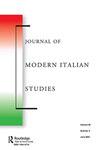20世纪80年代的意大利共产党与意大利政党制度的终结
IF 0.7
3区 历史学
Q1 HISTORY
引用次数: 1
摘要
摘要意大利共产党在20世纪90年代初意大利政党制度的终结中发挥了决定性作用,其解散引发了现有政党的组织和选举崩溃。如果是这样的话,那么产生的问题是是是什么引发了人民解放军的解散。文献中形成了一种传统观点,将解散归结为中欧和东欧共产主义政权的崩溃,从而有效地消除了人民解放党作为其自身命运代理人的地位。然而,对人民大会党最后十年的分析揭示了一幅不同的画面,这幅画面仍然承认国际事件的作用,但却是现有戏剧性变革计划的催化剂,该计划始于20世纪80年代末,以应对该党的生存危机。在修正该党和意大利历史上的这一关键时期时,可以重申人民大会党作为一个负责自己命运的独立机构的作用。在这样做的过程中,它对20世纪90年代初意大利政党制度结局的原因有了新的认识,并将国际事件在对意大利共产党最后十年的危机进行长期分析中的作用置于背景之下。本文章由计算机程序翻译,如有差异,请以英文原文为准。
The Italian Communist Party in the 1980s and the denouement of the Italian party system
ABSTRACT The role of the Italian Communist Party (P.C.I.) in the denouement of the Italian party system in the early 1990s was decisive, its dissolution helping to trigger the organizational and electoral collapse of the existing parties. If so, the question that arises is what triggered the dissolution of the P.C.I. A conventional wisdom has developed in the literature that puts the dissolution down to the collapse of the communist regimes in central and eastern Europe, effectively removing the P.C.I. as an agent of its own destiny. Yet, an analysis of the P.C.I.’s final decade reveals a different picture, one that still recognizes the role of international events but as a catalyst to an existing programme of dramatic change which began in the late 1980s in response to an existential crisis of the party. The role of the P.C.I. as an independent agency in charge of its own destiny can be reasserted in revisting this critical period in the party’s and Italy’s history. In doing so, it casts new light on the causes of the denouement of the Italian party system in the early 1990s, contextualizing the role of international events in a longer-term analysis of an enveloping crisis of the P.C.I. in its final decade.
求助全文
通过发布文献求助,成功后即可免费获取论文全文。
去求助
来源期刊

Journal of Modern Italian Studies
Multiple-
CiteScore
1.00
自引率
25.00%
发文量
66
期刊介绍:
The Journal of Modern Italian Studies (JMIS) is the leading English language forum for debate and discussion on modern Italy. This peer-reviewed journal publishes five issues a year, each containing scholarly articles, book reviews and review essays relating to the political, economic, cultural, and social history of modern Italy from 1700 to the present. Many issues are thematically organized and the JMIS is especially committed to promoting the study of modern and contemporary Italy in international and comparative contexts. As well as specialists and researchers, the JMIS addresses teachers, educators and all those with an interest in contemporary Italy and its history.
 求助内容:
求助内容: 应助结果提醒方式:
应助结果提醒方式:


